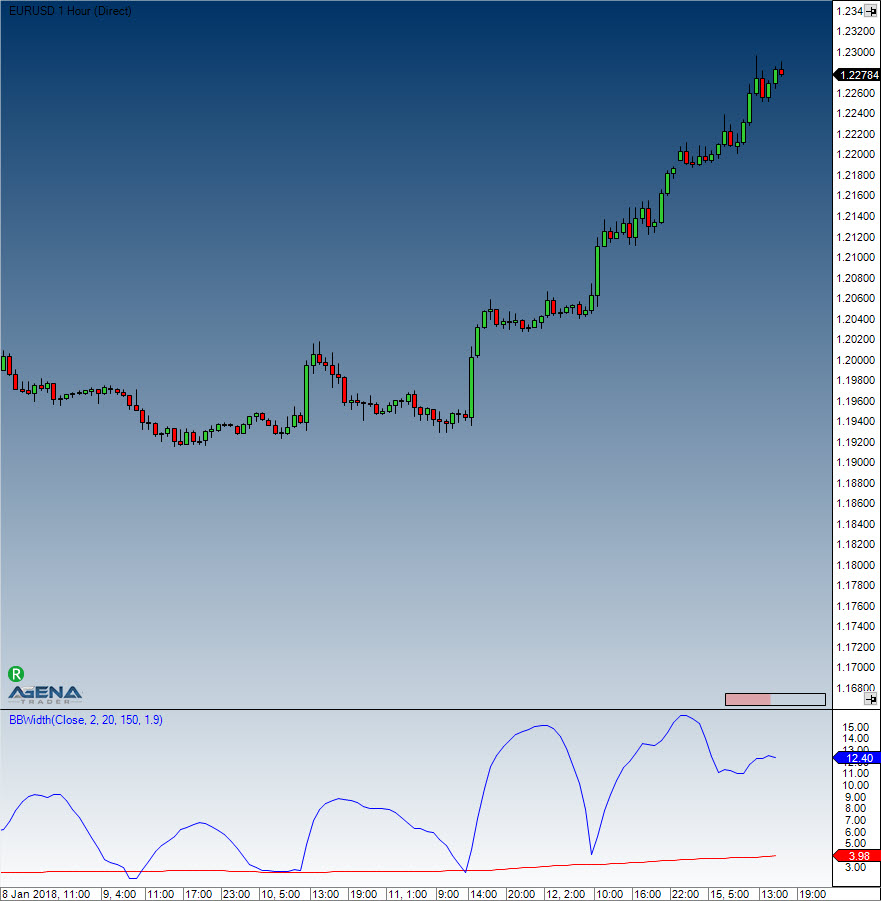Bollinger Band Width (BBWidth)
Description
Interpretation
Further information
Usage
BBWidth(double numStdDev, int period)
BBWidth(IDataSeries inSeries, double numStdDev, int period)
BBWidth(double numStdDev, int period)[int barsAgo]
BBWidth(IDataSeries inSeries, double numStdDev, int period)[int barsAgo]
//For the value of the upper Band Width
BBWidth(double numStdDev, int period).BandWidth
BBWidth(IDataSeries inSeries, double numStdDev, int period).BandWidth
BBWidth(double numStdDev, int period).BandWidth[int barsAgo]
BBWidth(IDataSeries inSeries, double numStdDev, int period).BandWidth[int barsAgo]
//For the value of the trigger line (threshold)
BBWidth(double numStdDev, int period).Threshold
BBWidth(IDataSeries inSeries, double numStdDev, int period).Threshold
BBWidth(double numStdDev, int period).Threshold[int barsAgo]
BBWidth(IDataSeries inSeries, double numStdDev, int period).Threshold[int barsAgo]Return value
Parameters
Visualization

Example
Last updated